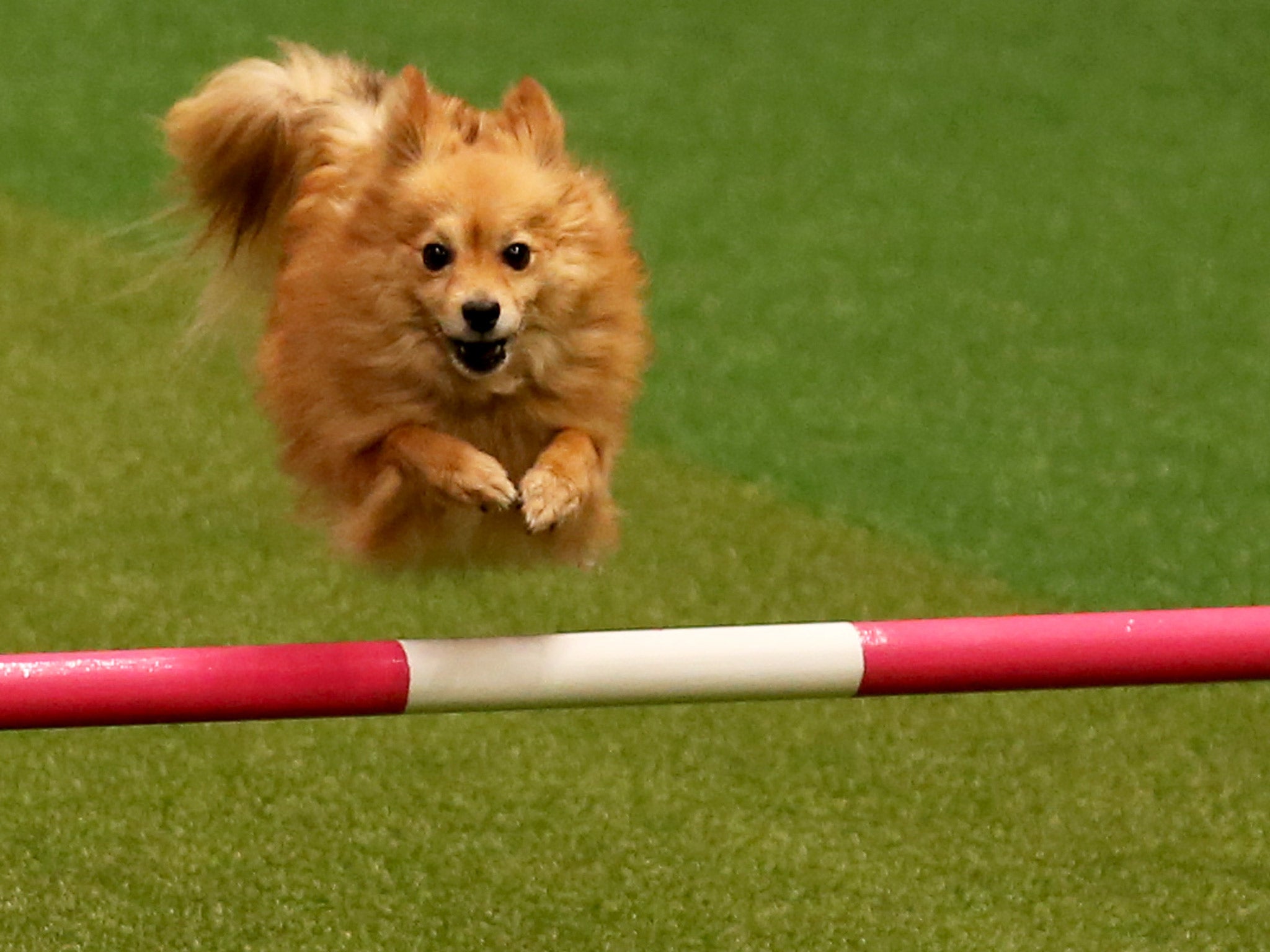Crufts 2015: Should foreign dogs be allowed to compete?
A British institution is under attack from foreign pooches with their fancy products and unscrupulous owners. Gillian Orr reports on the dog-eat-dog world of Crufts

Colin the Pomeranian is a playful, happy-go-lucky ball of orange fluff. Competing last year at Crufts, which opens its doors again next week, Colin was noted for having an excellent relationship with his handler and for clearly delighting in prancing around Birmingham's National Exhibition Centre. In the end, the two-year-old cutey was voted one of the seven group winners. He might have missed out on the top prize to a poodle called Ricky, but Colin stole hearts and was rewarded with a pack of fans on Twitter.
However, a number of Crufts entrants are not happy about Colin's success. You see, despite the British-sounding name that he shares with other stars from these fair isles – such as Firth, Montgomerie and Blunstone – Colin the Pomeranian is, in fact, Polish.
And it would seem that there are plenty of Crufts enthusiasts who are less than happy with the rise in foreign canines "coming over, stealing our prizes" (although we are yet to hear what Mark Reckless makes of the controversy.)
Until 2000, Crufts was a national institution; as British as cucumber sandwiches, Marks and Spencer, and vomiting in the street. But the following year the UK relaxed its quarantine laws and foreign mutts were able to enter the annual competition. Since then, the number of four-legged friends requiring a passport to attend the dog show has rocketed. In 2009 there were just 1,100 overseas hounds; this year a record 2,995 are registered to take part. While the majority come from Europe (631 French, 530 Italians, and 513 Germans) there are also entrants from the United States, South Korea, Thailand and Brazil. It's practically the World Cup.
But purists are displeased with the direction the competition is taking and the fur is beginning to fly. A report in The Daily Telegraph quoted various members of British canine societies (who wished to remain nameless; xenophobia at pups does seem a bit soulless) who were aghast. One of the main reasons, it would seem, is that some believe judges are advised to select foreign entrants as winners, in order to keep up the influx and rake in the dough.
"The Kennel Club has been trying to encourage foreign dogs across but it is because they are interested in making money," one anonymous Crufts aficionado said. "It's just bums on seats. The foreign dogs are no better than UK dogs but proportionately, they do seem to do better."
Anther reason that several British handlers would like to see the competition "go back to their own country" is that they claim their foreign rivals have different rules on grooming, as well as a unique way of behaving at the show.
While "performance enhancing" products have only been allowed at Crufts since 2013, dog shows abroad have been using such tricks for years, meaning they have had more experience of dousing their pooches in Elnett.
Meanwhile, a number of overseas competitors have taken to slow clapping at the event – a continental practice – which British handlers claim is distracting and confusing for their animals.
"The reason I haven't [entered] is because we already know where the top prize will go and that is abroad," another canine society member told the Telegraph.
I contacted a number of dog owners and society members, yet no one wanted to speak with me about the debacle. One (again anonymous) woman started telling me what a shame she found the foreign invasion to be until she probably realised how, er, bitchy it sounded to attack golden retrievers from the Dordogne and quickly backtracked.
The Kennel Club, however, is insisting that no such hostility towards overseas breeds exists and that it is committed to "ensuring that the visitors that we attract are informed about how to breed, buy and care for dogs throughout the event, which is one of many ways that we aim to improve dogs' lives".
That all sounds fair enough. Besides, surely their presence just boosts the event; I mean, imagine how boring Wimbledon would be if they didn't let any foreign competitors in?
Subscribe to Independent Premium to bookmark this article
Want to bookmark your favourite articles and stories to read or reference later? Start your Independent Premium subscription today.

Join our commenting forum
Join thought-provoking conversations, follow other Independent readers and see their replies